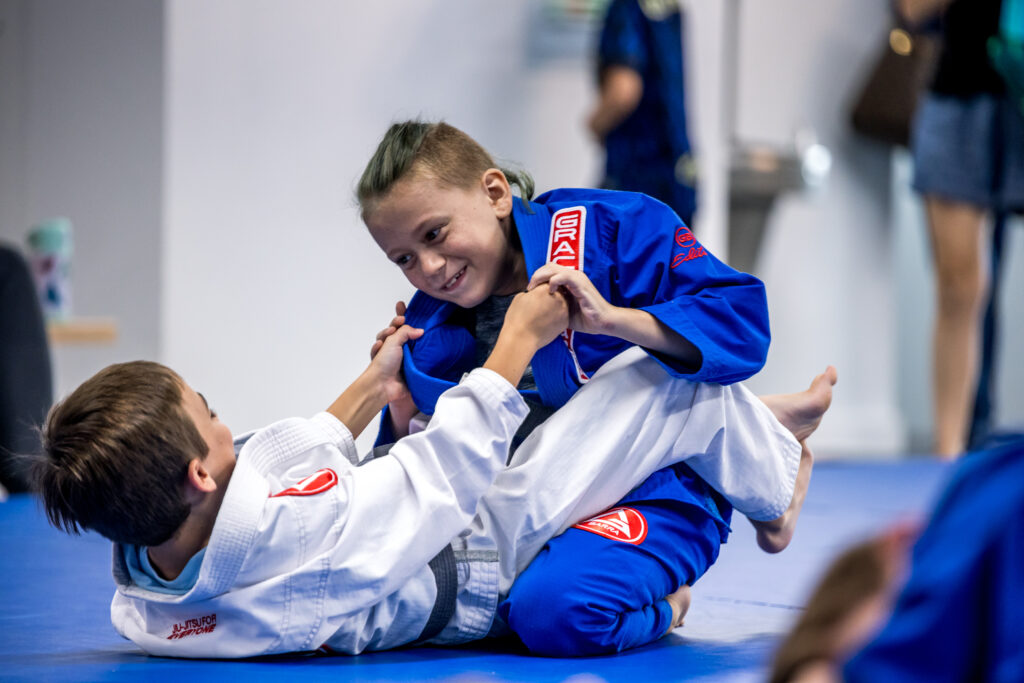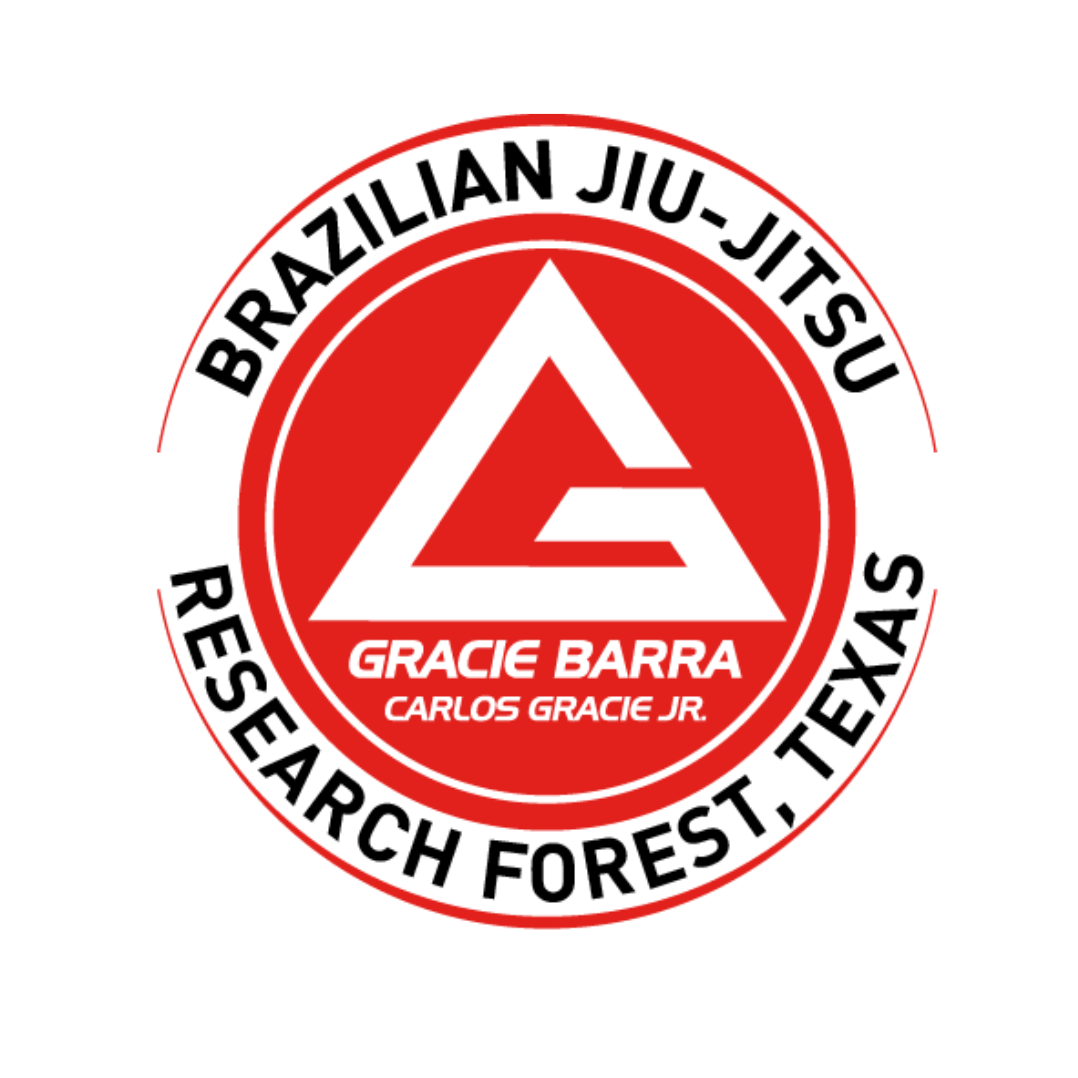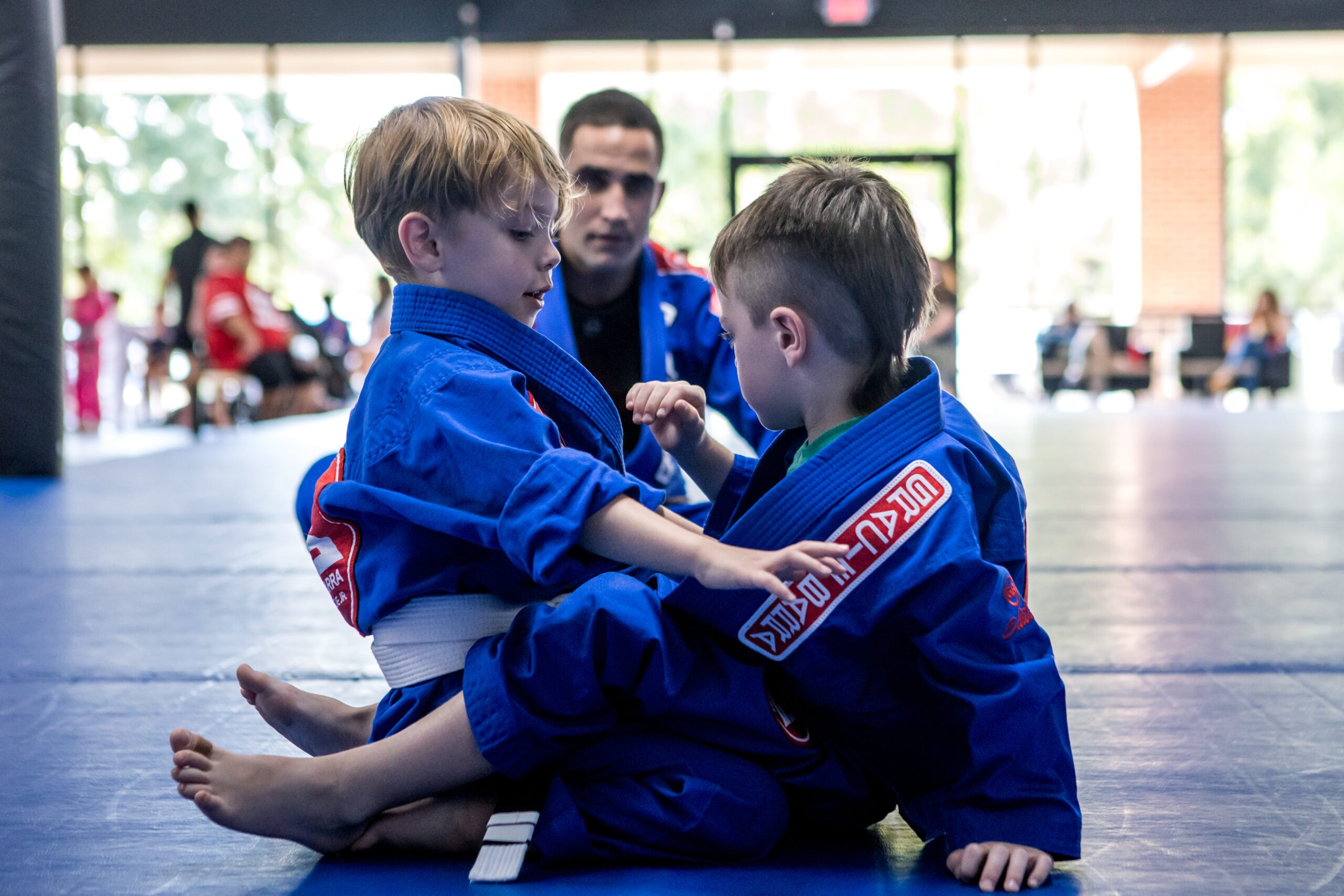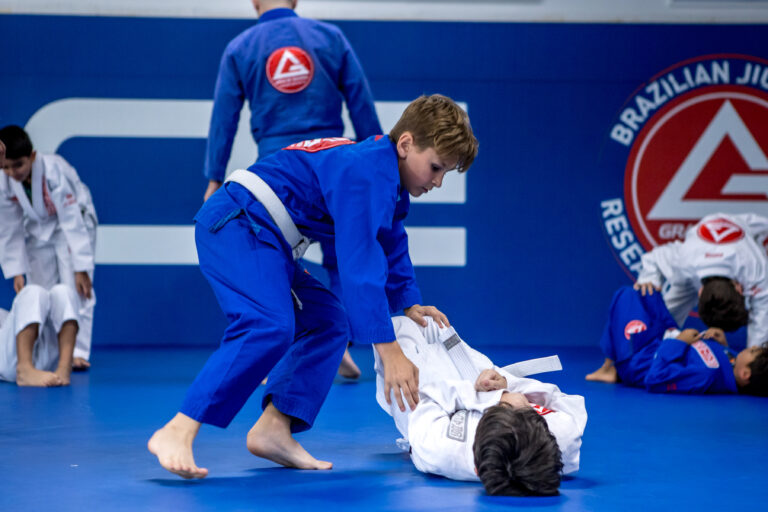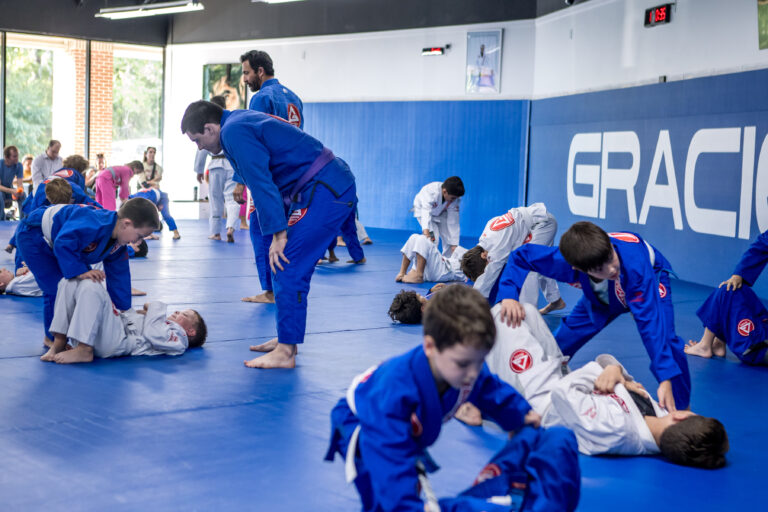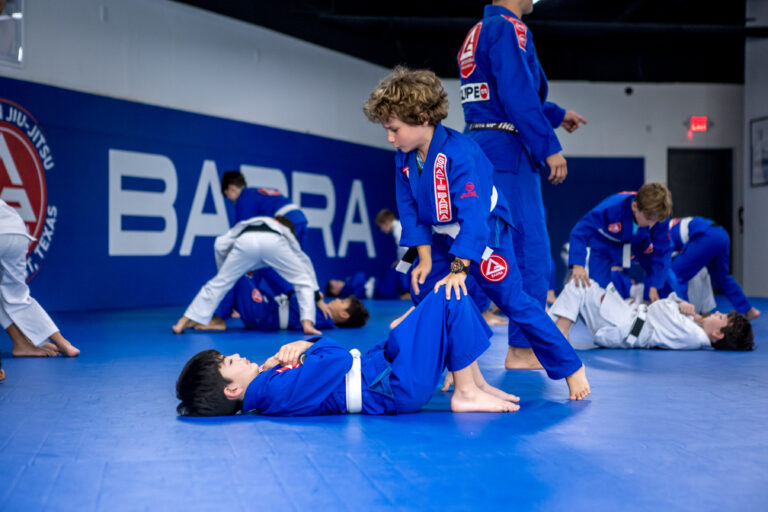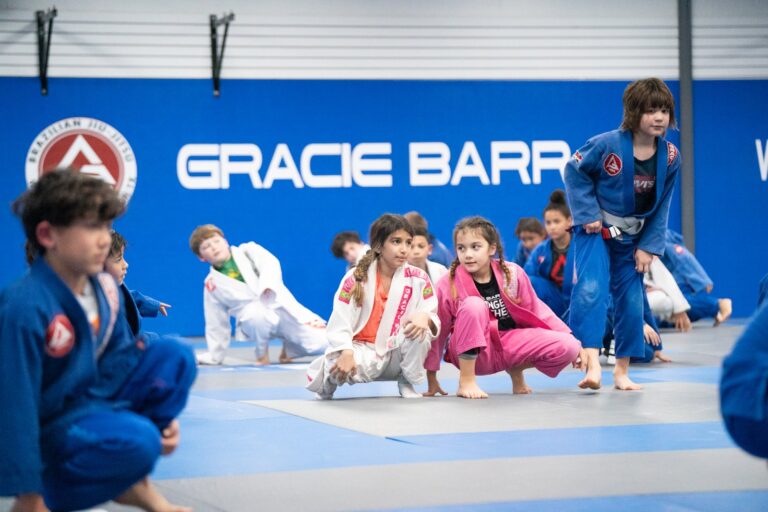Jiu-Jitsu, a martial art originating from Japan and refined in Brazil, is not just a physical practice but a philosophy of life. For young individuals, this activity goes beyond competition and physical conditioning, offering a variety of advantages. Let’s explore the positive aspects of this martial art in the development of children and adolescents.

Physical Development:
Jiu-Jitsu is a complete exercise that helps children improve strength, flexibility, endurance, and coordination in a fun and challenging way.
Discipline and Respect:
Based on respect for others, young individuals learn early on to follow rules, show consideration for instructors and peers, promoting discipline and sports ethics.
Cognitive Growth:
Jiu-Jitsu demands concentration and strategy, fostering beneficial cognitive skills not only in sports but also in academic and social life.
Confidence and Self-Control:
Regular practice helps young individuals overcome challenges, boosting their self-confidence and encouraging crucial emotional control during combat.
Bullying Prevention:
Effective against bullying, Jiu-Jitsu teaches non-violent defense and strengthens physical and mental skills to handle conflicts, creating a positive environment.
Sociability and Teamwork:
Group training fosters sociability, interaction, and friendship formation, establishing a vital supportive environment for emotional and social development.
Mental Health and Well-Being:
Regular practice contributes to mental health, releasing endorphins and reducing stress and anxiety, promoting overall well-being.
In Short:
In addition to being an effective form of self-defense, Brazilian Jiu-Jitsu provides a wide range of physical and mental benefits. On the physical aspect, consistent practice strengthens the body, enhances motor coordination, flexibility, and endurance. These benefits contribute not only to performance in daily activities but also to the promotion of a healthy lifestyle. In addition to physical conditioning, Brazilian Jiu-Jitsu is a powerful tool for mental development. The need for focus and concentration during training promotes discipline and the ability to face challenges with determination. Resolving instant problems on the mat also enhances mental agility and decision-making under pressure.
